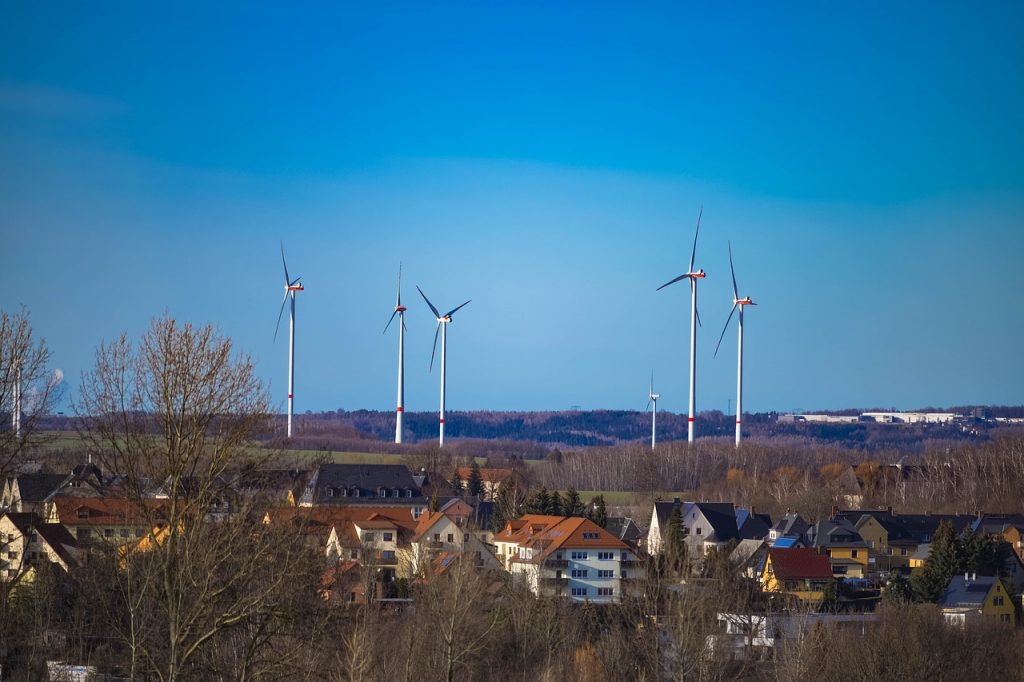Are you concerned about the environment? Is your company actively responding to concerns over climate change? This article details 7 ways your brand can embrace an environmental sustainability blueprint and social responsibility...
7 Steps Rural Communities Can Take For A Smart Sustainability Blueprint
Sustainability has quickly evolved from just another buzzword to an integral component:
- Public policy
- Corporate strategies
- Individual lifestyle decisions
Ideally, sustainability should become part of our everyday consciousness to preserve Earth's resources for future generations. Yet, implementation doesn't lie solely with metropolitan cities and large corporations. Small towns also play an essential role in supporting these efforts on a local level.
This article covers strategies for small town stakeholders to implement the realistic sustainability blueprint for small towns that is right for their situation.
Energy Efficiency
Small towns can take the lead in promoting energy efficiency.
Municipalities can make strides toward energy conservation by exchanging traditional street lights with LEDs that use less electricity and have longer lives. Public building managers and local business owners may be encouraged to switch over to energy-saving appliances and heating systems. Incentivizing individuals households towards eco-friendly appliances is another great way for small towns to promote energy efficiency.
Educators in each town should offer educational workshops on conserving energy use and supporting renewable sources like wind or solar.
Waste Management: Leveraging Technology
Small changes can have a significant impact. When it comes to waste management, use garbage truck routing software to optimize routes and reduce:
- Fuel consumption
- Vehicle wear and tear
- Time spent collecting
Efficient operations also mean reduced CO2 emissions -- Contributing to greener waste collection!
Incorporating technology like software and AI will transform traditional waste collection methods into greener practices.
Engaging Local Food Systems
Investing in local food systems can significantly lower carbon emissions compared with long distance produce transportation.
Farmers' markets and community gardens encourage residents to purchase locally grown produce further decreasing carbon emissions while supporting small-scale farmers. All while offering healthy fresh options to the community.
Additionally, these efforts lead to future employment opportunities for some community members, adding value to the sustainability blueprint.
Water Conservation Measures
Water is an indispensable resource that needs to be managed carefully. Small towns can implement water conservation measures such as:
- Rainwater harvesting systems
- Efficient irrigation systems
For public parks and water-saving fixtures in public buildings. These actions will make a substantial difference when safeguarding resources for future generations.
Digitalization And E-Governance
Evolving technology is providing greater power for sustainable governance in small towns. Digital control offers rural areas an unprecedented opportunity for sustainable management.
E-Governance can significantly decrease paper usage while simultaneously decreasing deforestation and waste production. From paying utilities online to conducting meetings via video conferencing, digital governance saves resources while improving municipal operations efficiency.
Providing platforms for civic engagement provides towns with even more inclusive decision-making processes that encourage community involvement in sustainability initiatives.
Enhancing Biodiversity: Wisdom In Your Sustainability Blueprint
One often-overlooked aspect of sustainability where small towns excel is biodiversity.
- Encouraging the growth of native plants
- Creating wildlife-friendly spaces in public parks
- Developing local greenways
Biodiversity can flourish and contribute significantly to the ecological health of a town. Do not underestimate the planting of native vegetation or creating wildlife-friendly areas in existing greenways.
Green spaces also serve as homes for local fauna while offering mental health benefits and recreational opportunities to residents. Small steps like installing bee-friendly planters can make a big difference in relationship to other communities and our Earth.

Small towns possess unique advantages when it comes to planning and infrastructure. They can incorporate green building practices into local building codes for new projects to ensure energy efficiency and sustainable materials are used when constructed. Furthermore, promoting public transportation such as cycling and walking can significantly lower a town's carbon emissions.
Investing in infrastructure like bicycle lanes or pedestrian-friendly sidewalks makes these options more accessible and safer for everyone in the city. By embracing biodiversity, small towns can create an ecosystem capable of supporting human life alongside wildlife species alike.
Circular Economy At A Local Scale
An innovative strategy small towns can take to increase sustainability is encouraging a local circular economy. This involves encouraging businesses and households to:
- Utilize resources as long as possible before extracting maximum value
- Recovering products after service lives have ended
- Recovering materials at the end
For instance:
- Repair shops
- Secondhand shops
- Composting facilities
Can all play an integral part in making a circular economy more sustainable. In turn, this creates stronger bonds among inhabitants and encourages greater community cooperation.
Final Thoughts On Your Sustainability Blueprint
Transitioning towards sustainability is a shared effort involving:
- Individual citizens
- Local businesses
- Local food systems
- Green infrastructure
- Water conservation efforts
When small towns focus on:
- Energy efficiency
- Waste management
- Energy conservation
And other similar measures as catalysts of sustainability, stronger communities are built with stronger connections that reduce carbon footprints while optimizing healthier lives.
Together we can improve the world, one small town at a time. It really is a realistic sustainability blueprint.
